US style abortion picketing now over here
Most people associate abortion clinic picketing with Bible-belt conservative Americans. But its closer to home than you think
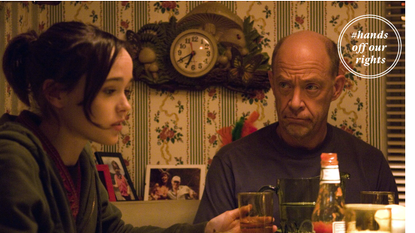
Most people associate abortion clinic picketing with Bible-belt conservative Americans. But its closer to home than you think
Words by Hannah O'Neill
Fans of the film Juno will recall a scene where the teenager visits an abortion clinic, only to run into a girl she knows from school standing outside, yelling: “Your baby has fingernails!”
Or maybe you’ve seen Louis Theroux’s documentary America’s Most Hated Family, in which Westboro Baptist Church protestors are in a constant state of absurd, sign-wielding rage. They arm their kids with placards and order them to parrot slogans that, despite their prepubescent fury, they clearly have no understanding of.
For women trying to deal with an unplanned pregnancy, however, that kind of outward harassment isn’t comical or absurd – it can be terrifying. In America, the war on abortion has been a bloody one. The most recent attack was on a Planned Parenthood facility in Colorado Springs in 2015, where three were killed and a further nine injured. When asked to give a reason, the shooter rambled about ‘no more baby parts.’
Such incidents are mercifully rare. Instead, pro-life activists usually opt for ‘disruption tactics’ to intimidate both abortion providers and those entering clinics. They picket facilities, waving banners and plastic ‘life-sized’ foetuses, in a bid to force the women seeking help to consider the material reality of what they are doing.
But increasingly such US-style pro-life protests are happening in the UK too. Head of Advocacy and Campaigns at the British Advisory Board (BPAS), Abigail Fitzgibbon, says this style of activism has been bubbling away under the surface for a decade, which explains why in 2014, BPAS - the biggest abortion provider in the UK launched ‘Back Off’, a campaign pushing for the establishment of ‘buffer zones’ around abortion clinics.
Marie Claire Newsletter
Celebrity news, beauty, fashion advice, and fascinating features, delivered straight to your inbox!
Abigail says the campaign was a reaction to aggressively pro-life groups like Abort67 and 40 Days for Life, which became active around 2010. “We’d seen very low level anti-abortion activity before that,” says Abigail, “and by that I mean a couple of men or nuns standing outside clinics every Wednesday lunchtime. That sort of thing. But we hadn’t really had anything in such an organized way ever.”
According to its website, Abort67 aims ‘to educate the public regarding the truth about abortion’. Among its primary ‘educational’ materials, the group uses images of bloody, dismembered limbs arranged on penny coins, and kidney dishes littered with tiny, fully formed hands and feet. ‘There is no way to sugar coat an image of abortion’, says the site.

American pro-life group 40 Days for Life, meanwhile, has established headquarters at 11 cities across the UK. It encourages 24-hour prayer vigils at abortion facilities in local communities; both are part of highly organized networks that originate in the States.
“Abort 67 is the UK arm of the Centre for Bioethical Reform UK, which is an extreme American organization,” Abigail explains. “They talk about abortion being akin to the Holocaust, and view themselves as the descendants of William Wilberforce trying to defeat slavery.”
Although the BPAS campaign has been up and running for a couple of years, progress has been slow. Police and authorities are reluctant to intervene, despite the groups growing more explicit in their intentions.
“It got to the point where Abort 67 and 40 Days for Life were both being very honest that what they wanted to do wasn’t to ‘counsel’ women, as they put it,” says Abigail, “they wanted to close clinics.”
BPAS started collecting client feedback forms, to see what they could do that was meaningful for these women. Abigail recalls one particular incident, when a woman who had became pregnant after being raped wrote on her form that her PTSD had been triggered by a group of protestors outside the clinic she visited.
Abigail says she's frustrated by the lack of actions from government on this issue. She points to countries like France and Canada, where there is legislation aimed at tackling these issues specifically.
“In British Columbia, the ‘Access to Abortion Services Act’ prevents people filming, repeatedly approaching or intimidating people within the vicinity of an abortion clinic,” she explains. “It removes the need for individual women to make complaints to the police, breaching their medical confidentiality and possibly taking on the anti-abortion movement in court.”
For women in Northern Ireland, the situation is particularly bad: for both staff and women seeking advice, the experience can be, as Abigail puts it, “extraordinarily horrific.” As long as police and authorities remain inert in the face of aggressive anti-abortion activists, their voices will only get louder. For women merely seeking advice on a legal procedure that can nevertheless bring a large amount of emotional turmoil at an already stressful time. Turmoil that they simply don’t need.
The leading destination for fashion, beauty, shopping and finger-on-the-pulse views on the latest issues. Marie Claire's travel content helps you delight in discovering new destinations around the globe, offering a unique – and sometimes unchartered – travel experience. From new hotel openings to the destinations tipped to take over our travel calendars, this iconic name has it covered.
-
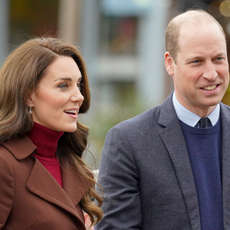 William promises to 'look after' Kate during her cancer treatment
William promises to 'look after' Kate during her cancer treatmentHe returned to work today and reassured royal fans
By Jadie Troy-Pryde
-
 Quick – the whole fashion team is adding these £36 crystal ballet flats to basket
Quick – the whole fashion team is adding these £36 crystal ballet flats to basketShining, shimmering, splendid
By Natalie Hughes
-
 Olivia Munn opens up about her medically-induced menopause following breast cancer diagnosis
Olivia Munn opens up about her medically-induced menopause following breast cancer diagnosis"I figured, as a woman, I can't escape menopause. So I'd rather just take it on now."
By Jadie Troy-Pryde
-
 This is how Melinda Gates is fighting for family planning services
This is how Melinda Gates is fighting for family planning servicesAnd it's about to make a big difference
By Rosie Benson
-
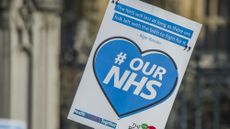 Northern Irish women gain access to free abortion on the NHS
Northern Irish women gain access to free abortion on the NHSStella Creasy MP led the campaign for an amendment in the law ahead of a government debate
By Rosie Benson
-
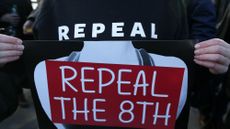 The reality of life as a woman in the shadow of the DUP
The reality of life as a woman in the shadow of the DUPJust 24 hours after a DUP-Conservative Alliance was put forward by Theresa May, there are reports that the Democratic Unionist Party could push for amendments to UK abortion laws as part of their support for May's flailing government. CAITLIN DE JODE, who grew up with the reality of this deeply conservative party in Ireland reveals why Theresa May's new partnership is deeply worrying for all of us. Here's her account.
By Andrea Thompson
-
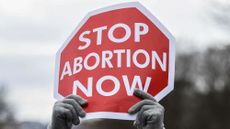 Meet the pro-choice crusader changing the lives of women
Meet the pro-choice crusader changing the lives of womenMara Clarke founded the Abortion Support Network, which provides non-judgemental advice, financial assistance and accommodation to women travelling from Ireland and the Isle of Man to access safe terminations. Marie Claire's Hilal Seven hears her story
By Marie Claire
-
 Some men have just said the *stupidest* thing about birth control
Some men have just said the *stupidest* thing about birth controlAnd people on Twitter have responded accordingly
By Delphine Chui
-
 Accessing the morning after pill in the UK: extortionate costs and unnecessary consultations
Accessing the morning after pill in the UK: extortionate costs and unnecessary consultations'It’s taking people who need an emergency treatment and profiteering from that'
By Marie Claire
-
 Are you joining the women's strike today?
Are you joining the women's strike today?Here's what you should know first
By Andrea Thompson
-
 How being a woman has changed over 100 years
How being a woman has changed over 100 yearsWomen have come a long way since 1917 -when we couldn't vote, get legal protection from marital rape, or initiative divorce
By Rosie Benson